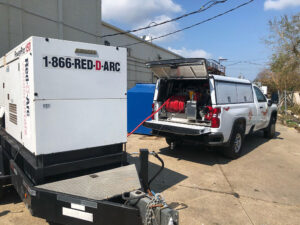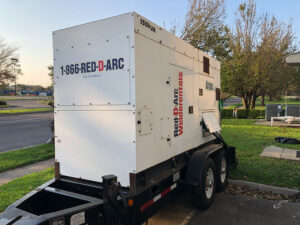
When you have a durable, well-maintained standby fuel source, you’re guaranteed to be protected against costly utility power outages. For critical businesses and facilities that rely on power for their operations to remain safe and functional, backup generators offer a reliable solution during unforeseen outages. To limit downtime and revenue loss, it’s important to properly maintain your generator and keep up with refueling before a disaster strikes.
5 Common Mistakes In Generator Maintainance
Avoid these mistakes to maintain your backup fuel supply and limit generator breakdowns:
1. Too Old Fuel
The type of fuel your machinery runs on will affect performance, especially your generator since it probably doesn’t get used frequently. Supplying your generator with high-quality fuel prevents condensation build-up over time and keeps the system in optimal shape when it’s time to fire up.
Even if you’re using high-quality fuel, you should make sure the fuel is fresh. Diesel fuel tends to deteriorate after it sits for 6 months and can become stale or gummy. If your fuel isn’t flowing properly, your system won’t function the way it should.
2. Not Exercising Your Generator a Couple of Times a Year
You may think your generator only needs to be run when it’s being used, but letting it sit for long stretches of time without use can lead to engine issues.
Regularly exercising your system’s engine keeps its parts lubricated and deters operational issues. Consider turning the unit on every few months and running it for about 30 minutes to keep the engine in its prime.
3. Skipping Routine Maintenance and Service

Like any system with an engine, routine checks are a surefire way to make sure your generator is safe to operate. It’s easy to put off simple maintenance tasks when the exterior looks in good shape, but diesel generators can leak hazardous materials if not examined every once in a while!
Plus, all generators should receive an oil change every 100 hours. Skimping on maintenance could end up costing you a replacement generator, so make sure to have your fuel company examine your unit.
4. Don’t Forget About the Secondary Tank
During an extended power outage, having your secondary tank fueled and ready to go is important to meet inventory needs.
When your tank is half full, this can create problems as well. Empty space in your tank invites condensation, which promotes microbial growth that will ultimately harm your engine. This is another reason why routine fuel maintenance plays a key role when maintaining a functioning generator.
Learn more about why businesses need fuel storage tanks.
5. Waiting Too Long to Refuel Until It’s Too Late
It’s easy to forget to refuel your backup system altogether, which is why it’s smart to have a reliable fuel management company monitor your supply.
Setting up routine fuel management and maintenance services ensures your generator will be in working order when you need it most.
Rely on Hart Fueling for Refueling Services
Leave it to the experts to keep up with your generator refueling. With a generator refueling contract, you are guaranteed dedicated, fast, and courteous service from our experienced team. For an annual fee, we’ll work with you to determine how much fuel you need and when it’s time to refuel so your business is never unprepared.
To get started with a fuel contract estimate, contact us today.